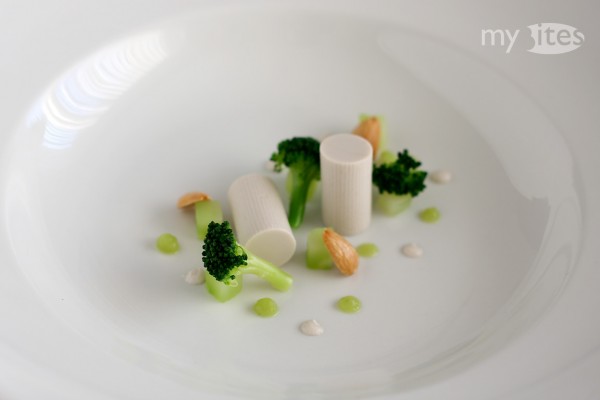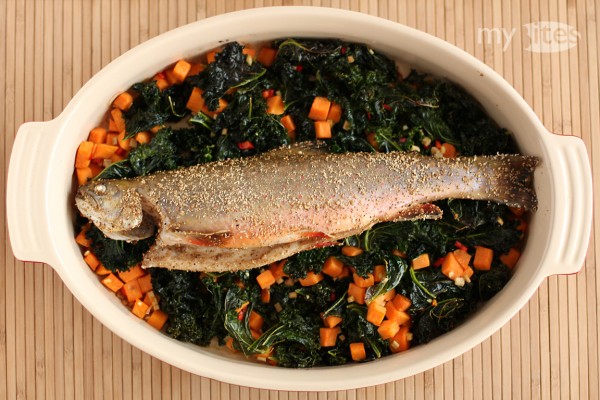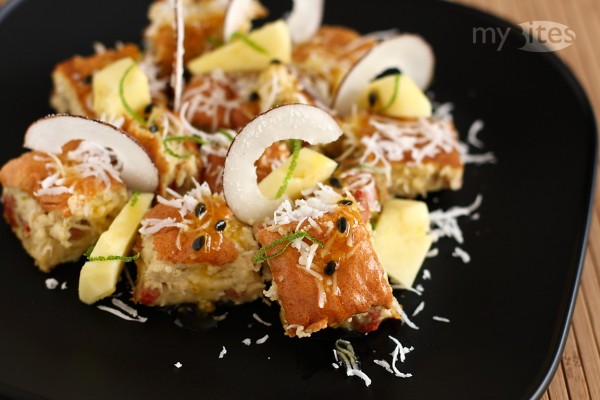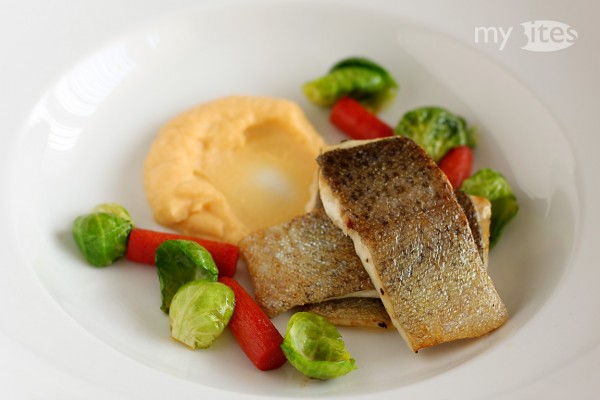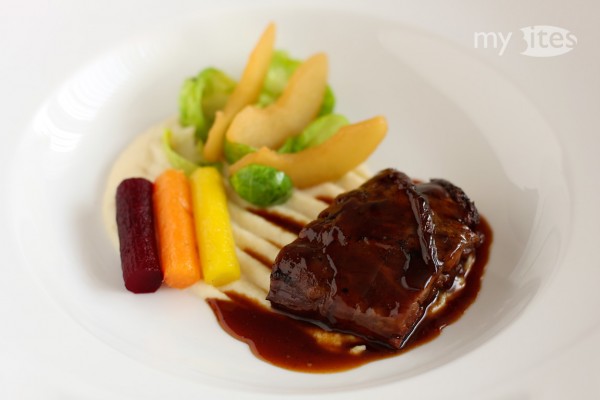Exploring how far I can take vegan food was only one of my motivations for creating a vegan menu. The other impulse originated from a documentary I came across recently. Forks over Knives takes a critical look at the western diseases from the perspective of the people’s diet. The main message of the documentary is that there is a direct causal relationship between the excessive amounts of meat, dairy products, sugar and fat consumed in our western diet, and the still increasing diseases of our era such as diabetes, heart attacks, strokes and cancer. According to the doctors and researchers featured in the film, all these diseases can be avoided and even cured by a whole-foods, plant-based diet.
Chestnut-filled Cabbage with Sunchoke and Cabbage-Tapioca
Nana, a vegetarian friend of mine, announced a vegetarian month, which aims to motivate people to prepare and eat a meatless meal at least once during this month. Besides eating less meat, hopefully the participants will also think a little bit about the vegetarian diet and probably notice that meat does not need to be present on the plate every day. All submitted recipes participate in a contest, where the winner gets an invitation to nana for a vegetarian dinner. Originating from nana’s call for recipes, I took the opportunity to give a thought not only about the vegetarian, but also about the vegan diet.
Char with Asian Style Kale and Sweet Potato
Some of the most surprising and greatest results emerge from sheer coincidence. It was a similar case for this crispy kale. I planned to use kale with sweet potato marinated Chinese style with soy sauce, garlic, roasted sesame oil, chili and ginger, and baked along with a whole char or trout in the oven. The result was surprising – an effect I originally haven’t intended or planned to achieve. All kale leaves that were standing out from the vegetable bed got wonderful crispy, resulting in a kind of kale chips with Chinese flavor.
Caribbean Coconut Kaiserschmarrn
What if Austria was located in the Caribbean? Perhaps, it could be a nice tropical island. Well, obviously you wouldn’t plan your ski holiday there. Apart from winter sports and from a more culinary viewpoint, Austria is most famous for its huge variety of delicious pastries. Perhaps one of the simplest and most popular desserts is the so called Kaiserschmarrn: a light and fluffy batter made with separately beaten eggs, which results in something between a soufflé and a pancake. According to the story of this dessert, it was first prepared and served for Emperor Franz Joseph I during the 19th century, who also gave the name to this dish. Now imagine the Austrian Emperor Franz Joseph I and his beloved wife Sissi sitting at the beach under a palm tree somewhere in the Caribbean. Obviously they won’t be eating their Kaiserschmarrn with apple puree, but rather use tropical fruits instead, like coconut, pineapple or passion fruit. Maybe the result would look somehow like this Caribbean Coconut Kaiserschmarrn.
Trout with Rutabaga Puree, Red Carrots and Brussels Sprouts
If you get bored of potatoes in winter, rutabaga is a great alternative. It makes a puree very similar in consistency, although the rutabaga version is lighter due to its lower starch content. I like to add a small garlic clove to the rutabaga while cooking it over low heat, which adds a nice flavor while not overwhelming the rutabaga’s taste. Rutabaga and especially its cooking liquid always remind me of peanuts. It has the sweetness of the peanuts too, which needs some balance that can be adjusted by a fruit vinegar of your choice.
Braised Lamb Knuckle with Quince Sauce and Autumn Vegetables
Winter is the season of braised meat. The secret of braising is pretty simple: use the cheap cuts with a lot of connective tissue and do not trim anything off of them. So ask your butcher please not to trim off anything at all. You can still cut it off on your plate, but if you braise meat long enough, the connective tissue will just disappear. Meat cooks a lot faster than the connective tissues, but if you braise your meat at low temperature for a long long time, the connective tissues are going to melt into the meat and turn the meat moist and soft. That is also the secret of all braised dishes and why they need so much time. I like to prepare them overnight in the oven. This way I don’t have to worry about any burnt parts and if I wake up during the night, I turn the meat around and go back to sleep. And I wake up in the morning with a wonderful scent of braised meat all over my flat.
